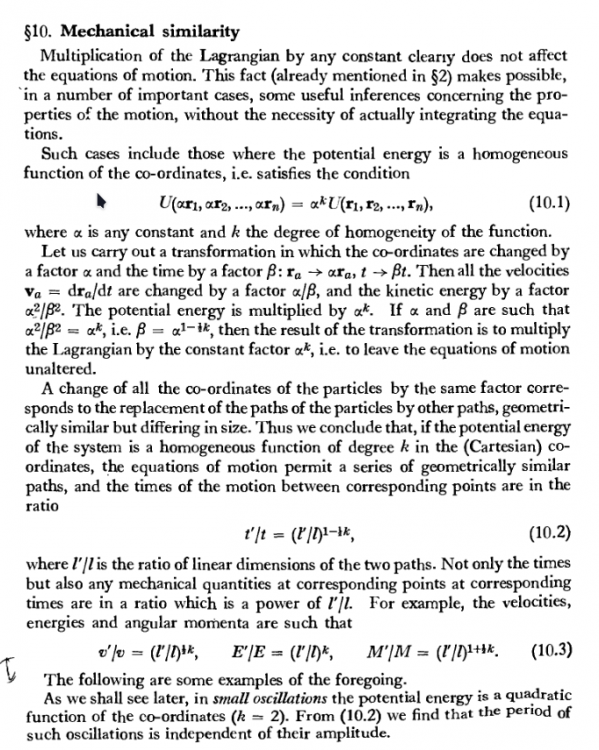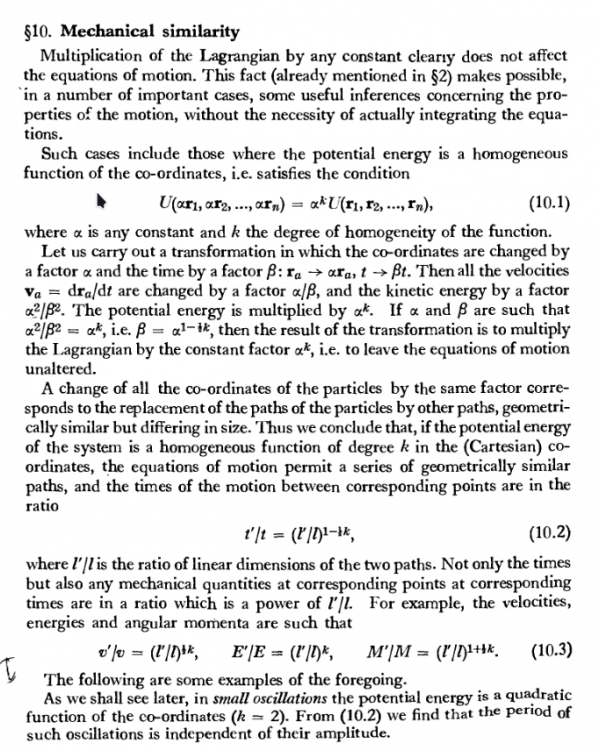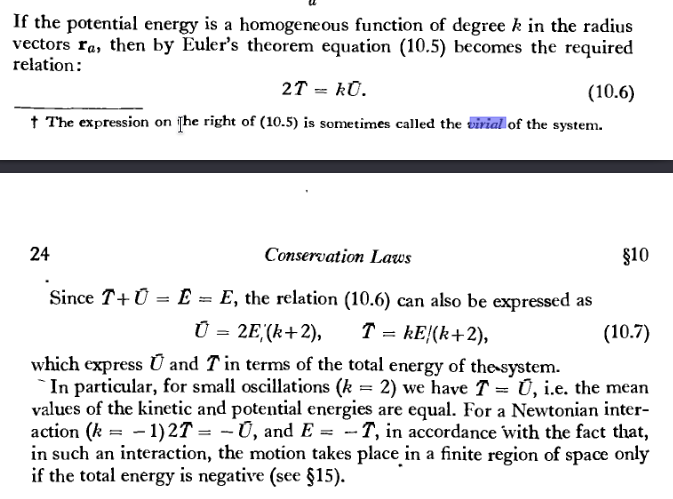
Everything posted by joigus
-
NSF & EFT announcement on May 12, 2022
Thanks. Merging suggested:
-
NSF & EFT announcement on May 12, 2022
Thanks!
-
How much of me is in my memory?
Does 'me' have parts?
-
If I was able to live for millions of years
If you're being digested by a bank? You've earned it!
-
If I was able to live for millions of years
Oh. I think that's because you're a bit particular about insects. I'd love to have a male fig-wasp tell me if this is a good deal: 1) Be born 2) Have sex 3) Die and be digested by your house They don't even know what having a meal is like. Yet, they've been around for hundreds of millions of years. Far longer than primates. But we humans have come up with and interesting alternative to 3): Buy a house, be digested by your bank, and die.
-
What is Art?
There's more art in Puffy Pufferson here than in many a student of Art I've met. Whether he does it for love or for a one-night stander, he only knows. I agree with you 80 %. The other part that humans add to the artistic equation is, IMO, awareness of death. Awereness of death in humans --and, don't tell anybody, but also I suspect probably in corvids and other primates at least-- has given art a compelling character for us as a species, that only the urge to procreate can rival with. I don't know where this feature puts us in relation with fundamental biological principles, or even among other species, that I suspect present us with the slightest inkling of something like that.
-
What is Art?
This idea that sexual selection is at the root of art I find very intriguing, and I would be pleased to know more about your idea and how you came up with it. It kinda makes sense, as there are examples in Nature where animals display and preen --to the point of risking their lives-- for the only purpose of attracting a mate. If that's the case, it obviously has grown into something much bigger than that. I've once read everything we do, we do in order to mate. Now, I think that's an exaggeration. But I'm diverting again... The paleolithic though goes as far back as 3.3 m.y.a., so it's not off the boundaries you propose. Paleoanthropologists have pushed the boundary much farther back than we used to think even a couple of decades ago. What I do know paleoanthropologists have said is that the first manifestations of art come from about 75,000 y.a. Circa the Toba eruption. Before that, it's as if we have modern humans from the anatomical point of view, but no art, no simbolism, and no traces of any religion. Sure. I agree. I didn't mean to say photography is not art. It is. I meant that, once the possibility arose to faithfully represent what we see by imprinting it, simply depicting what we see became not such a compelling artistic drive for painters and sculptors, and other, more abstract forms of 'depiction' became more relevant.
-
Number theory derivation from infinity; speculations on equations that are derived in terms of the Field
I would follow @studiot's advice here to disentangle physics and mathematics. There is a relationship to be sure, but there are many dangers in thinking one is the other. As to the virial theorem, in case you're interested, I'm going to follow Studiot's example too and give you a piece of a very commendable book. Landau-Lifshitz, Course of Theoretical Physics, Vol. 1. Mechanics:
-
What is Art?
Yeah, I think there's something at the root of art that's to do with the unattainable, with longing. I think when art was jump-started, back in the paleolithic, the main motivation must have been to conjure up those things that mattered most to our ancestors, but were not there and they could hardly wait to see again --mostly pack animals that constituted their main resource for survival, when they were gone and they knew they would have to wait for another year for them to come back. Curiously enough, they didn't depict predators nearly as much as they did their favourite prey. Then it became more about gods and human authorities. 'Think of me when I'm not here.' Sure that was what Roman emperors had in mind when they had artistic renditions of themselves put in place hundreds and hundreds of miles away from the place from where they exerted their authority. It's when photography became possible that art started to become more abstract, and more of an interior journey. Thanks for the link, BTW. I'm not surprised that, when people can be taken at their word that they like the art the see or hear, a rush of neurotransmitters goes with it.
-
What is Art?
You can do worse than being called a philosophical minimalist. The truth is I share your sentiments. Philosophy --the axiomatic approach-- has made my head spin in the past. I prefer hard-scientific, fact-based approaches. To a question such as 'what is art?', I think anthropology, paleoanthropology, and the like; have a lot to say about it. Also neuroscience. We cannot possibly understand what it is without understanding what paleolithic art was, as well as what it is that art does to our brains. What were those people trying to tell each other, themselves, or us? What does art do to our brains?
-
What is Art?
By the artist(s), of course. You are a philosophical minimalist, @Genady.
-
Number theory derivation from infinity; speculations on equations that are derived in terms of the Field
I'm not sure what relevance this has on Cantor's hypothesis, but the virial theorem is actually more general: True for any potential that is homogeneous in the spatial coordinates: \[ V\left(\lambda\boldsymbol{x}\right)=\lambda^{n}V\left(\boldsymbol{x}\right) \] So ideal gases, harmonic oscillators, and inverse-square systems all have a version of it. Sorry. I mistook this thread for another one. Oops!
-
What is Art?
How about this?: It's any original human-made thing that is intended, not necessarily to serve a practical function, but to engage an audience is sensory, emotional and imaginative dialogue with the artist, and thereby alter their view of the world.
-
Does modern physics support solipsism?
Not that I want to redirect the thread according to my wishes; and despite some very interesting comments having popped up so far, may I insist on my question? Why would it? That is: What is the salient argument from 'modern physics' that would support the view that solipsism is tenable/necessary/etc. in our view of the world? I don't see it. I do intuit that it's to do with quantum mechanics. Namely: that only the mind exists --Wigner's friend and so on. How does physics support that view --or any variant of it that can be explained clearly? Mind you, interpretations of quantum mechanics based on conscience are something of the past, and most of the physics community today find these interpretations at the very least unnecessary, and --given that, and that all consequences of quantum mechanics can be experimentally confirmed and objectively agreed--, unpalatable. Conscience should eventually be explained by science, but not taken as the underpinnings of it. Thinking, or even suggesting that, eg., craters on Mercury that were formed, say, 2 billion years ago, can be explained from the dynamics of the mind, is absolutely ridiculous. But if this complete turning upside-down of the mechanisms of explanation were to be inevitable, very strong arguments, and a theory accompanying them, should be provided. Vague suggestions coming from fancy phrasings of the peculiar aspects of quantum mechanics are not good enough. So I suppose I agree with the OP. I do not believe it.
-
Does modern physics support solipsism?
Why would it?
-
If I was able to live for millions of years
Just to add "cautionary tales of evolution" to what @Phi for All said, The male praying mantis is, in terms of evolution, very successful. Yet, he does it by providing the female with a delicious romantic dinner after sex in which he is the main and only course. Think about the implications of this. Evolution only cares about reproductive success. Doing well for yourself doesn't necessarily matter so much. Fig wasps are an even more extreme example. There are more examples of reproductive champion = individual loser in Nature. In tournament species, successful males are tipically short-lived.
-
The Ambiguity Thread
Thanks, Eise. I think the Dutch --both the language and the people-- are special in many ways, and in a very good way. But ambiguity is certainly no privilege of the Dutch. It's --arguably-- ubiquitous with human communication. It's sure enough present in the animal kingdom too.
-
The Ambiguity Thread
Yes. My rendering: They saw the girl who was carrying carries the binoculars They, with the help of some binoculars, saw the girl They spotted the girl, who was carrying some binoculars They spotted the girl with the help of some binoculars Nice example! First and second: 'saw" = use a saw to cut something Is the ambiguity also in 'zagen' and 'met'?
-
The Ambiguity Thread
Combinations of negative with composite sentences are my favourites. With imperative: 1) Don't just sit there and introduce yourself! 2) Don't just sit around and eat! (Solved with a comma in writing, and with voice modulation when speaking.) With 'because': I didn't marry him because of the money. Nice topic, BTW. I found 4 possible meanings. Some of them are gruesome. One, bordering plain absurd. But nice example!
-
Number theory derivation from infinity; speculations on equations that are derived in terms of the Field
Hi. I'm not an expert, but I can tell you what the present status of Cantor's continuum hypothesis is: (My emphasis.) https://en.wikipedia.org/wiki/Continuum_hypothesis So, within the Zermelo-Frenkel set-theory axioms, plus the axiom of choice, you can neither prove nor disprove the continuum hypothesis. And that's what I know. The possibility of a cardinality sandwiched between aleph_0 and aleph_1 is still conjectural.
-
What are you listening to right now?
What's eternal, is, even if it lasts for a minute.
-
Examples of Awesome, Unexpected Beauty in Nature
Awesome.
-
"AmmoniaConcentration" package in 'R'
I stand corrected. It sure looks a lot like the Henderson-Hasselbach equation. The base-10 logs should've given me a clue.
-
Jesus and Muhammed, same person?
Tell you what. Why not taking it further still? Zoroaster didn't die, so he was immortal. He became Jesus, who became Mohammed. That works better, I think. Covers more history, and explains monotheism as a logical continuity. IOW, The funny thing about religious thinking is you can make up just about anything. It all seems to work in your mind, under the utterly permissive protocol of coming up with a convenient just-so story, which is what characterises religions of any kind.
-
"AmmoniaConcentration" package in 'R'
I know the answer to the 1st one: It's the linearised Arrhenius equation: https://en.wikipedia.org/wiki/Arrhenius_plot which relates pH, pka, and activation energy with absolute temperature. I hope that helps.



